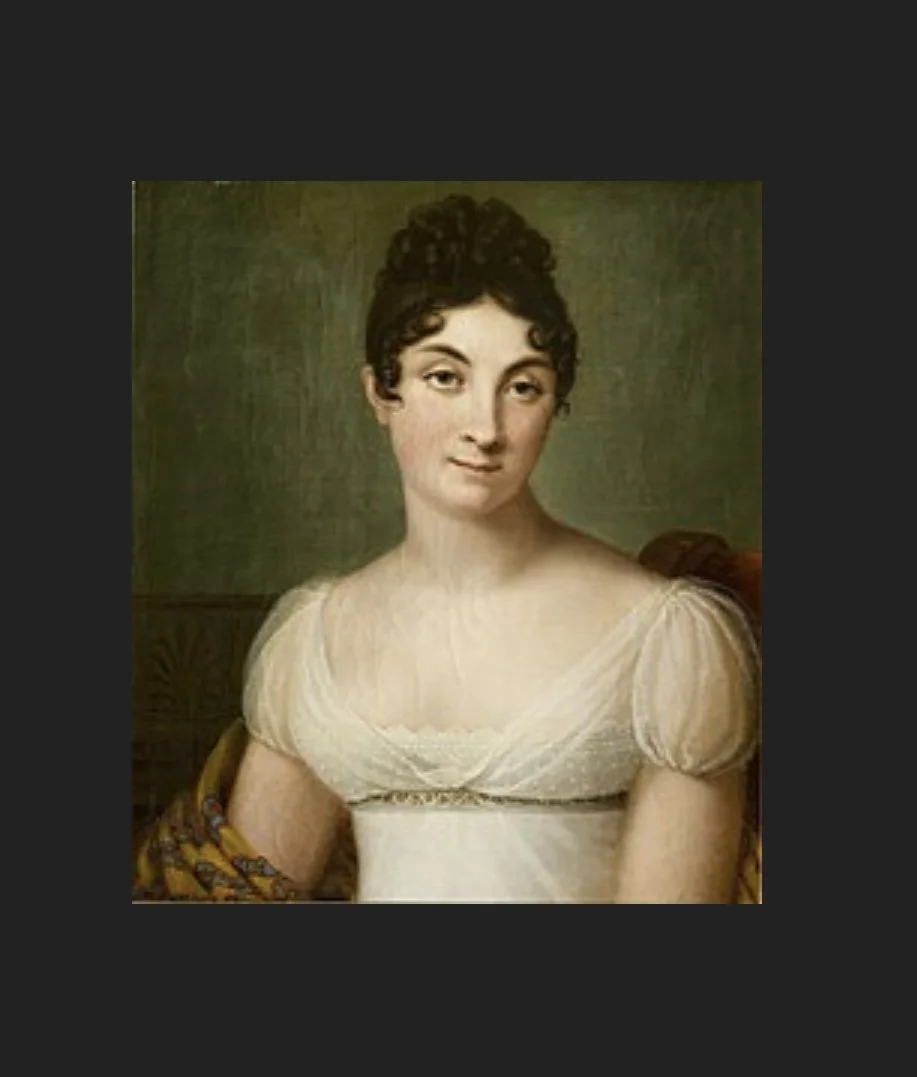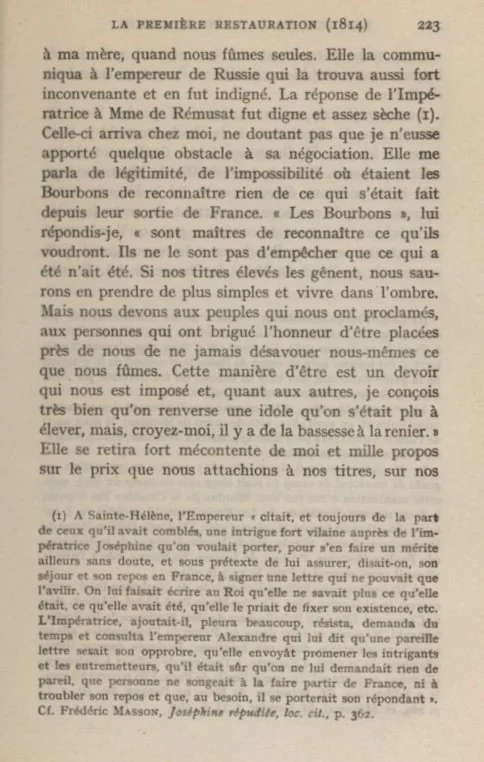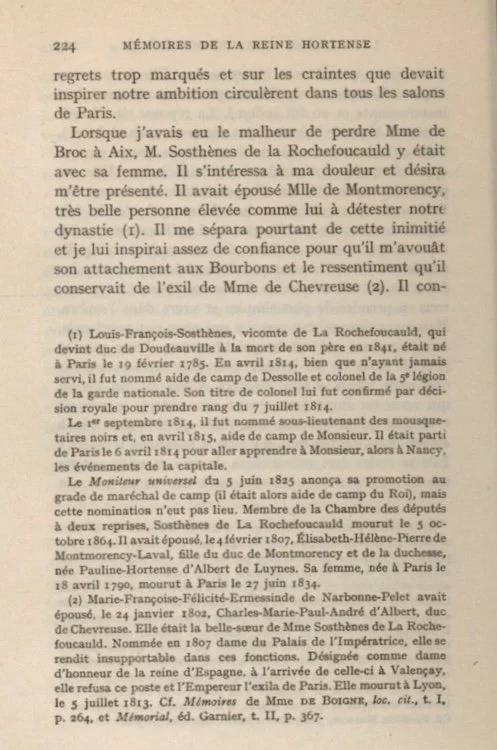Let’s have another look at Hortense’s Memoirs. If you want to read the book it is available for free at the side bar in English and French. Use the widget on the sidebar to translate the text below into pretty much any language.
The crowd playing their parts show up to maneuver Hortense and Josephine into doing what the script requires of them. The controllers want constant betrayal of Napoleon. When Hortense won’t give in, they vilify and lie about her. Hortense is framed as bad, wrong and dangerous. This group also starts to pretend en masse that Napoleon had never been ruler of France.
Hortense’s memoirs continues:
The Duc de Vicence was again instructed to confer with Monsieur de Nesselrode as to what had best be done. The Comte d'Artois was already in Paris, and everyone thronged around him.
Madame de Remusat, who so shortly before had been lady in waiting to the Empress Josephine, came to Malmaison one morning and gave her to understand that it was advisable for her (my mother) to pay some mark of respect to the family who were about to ascend the French throne. The Empress, so Madame de Remusat said, doubtless wished to remain in France. But this would scarcely be allowed unless she had given evidence of her adherence to the cause of the Bourbons.
She then showed my mother the draft of a letter which she and Monsieur de Talleyrand had drawn up and which she advised my mother to copy and send to the Comte d'Artois. She doubtless thought her scheme would prove successful, for rumors of what she was trying to do, so contrary to my mother's dignity, had been widely circulated beforehand. The letter itself was ridiculous. It concealed disloyalty to the Emperor Napoleon under cover of seeking personal advantages. I pointed this out to my mother when we were alone together. She showed it to the Emperor of Russia, who thought it in very bad taste and was most indignant about the matter.
The Empress's reply to Madame de Remusat was dignified and rather disdainful. Madame de Remusat came to see me, as she was convinced that I had placed obstacles in the way of the success of her negotiations. She talked about the legitimacy of the dynasty and pointed out how impossible it was for the Bourbons to recognize anything that had taken place since their departure from France and so on.
To this I replied: "The Bourbons are free to recognize whom and what they please. They are not free to pretend that what took place never happened. If our lofty titles annoy them, we are willing to accept lower ones and live quietly. But we owe it to the people who made us what we are, to those who sought to serve us loyally, never to allow ourselves to act in a manner not worthy of that rank. We must behave in a proper manner; it is our duty to do so. As for other people, I admit that though a man may overthrow the god he has himself created, I assure you he acts shamefully when he rejects him."
She left greatly annoyed with me, and a hundred anecdotes about how attached we were to our titles, our regrets at the loss of our rank and the danger there was in our ambition to recover all this began to circulate in the drawing-rooms of Paris.
The original French is available below:




